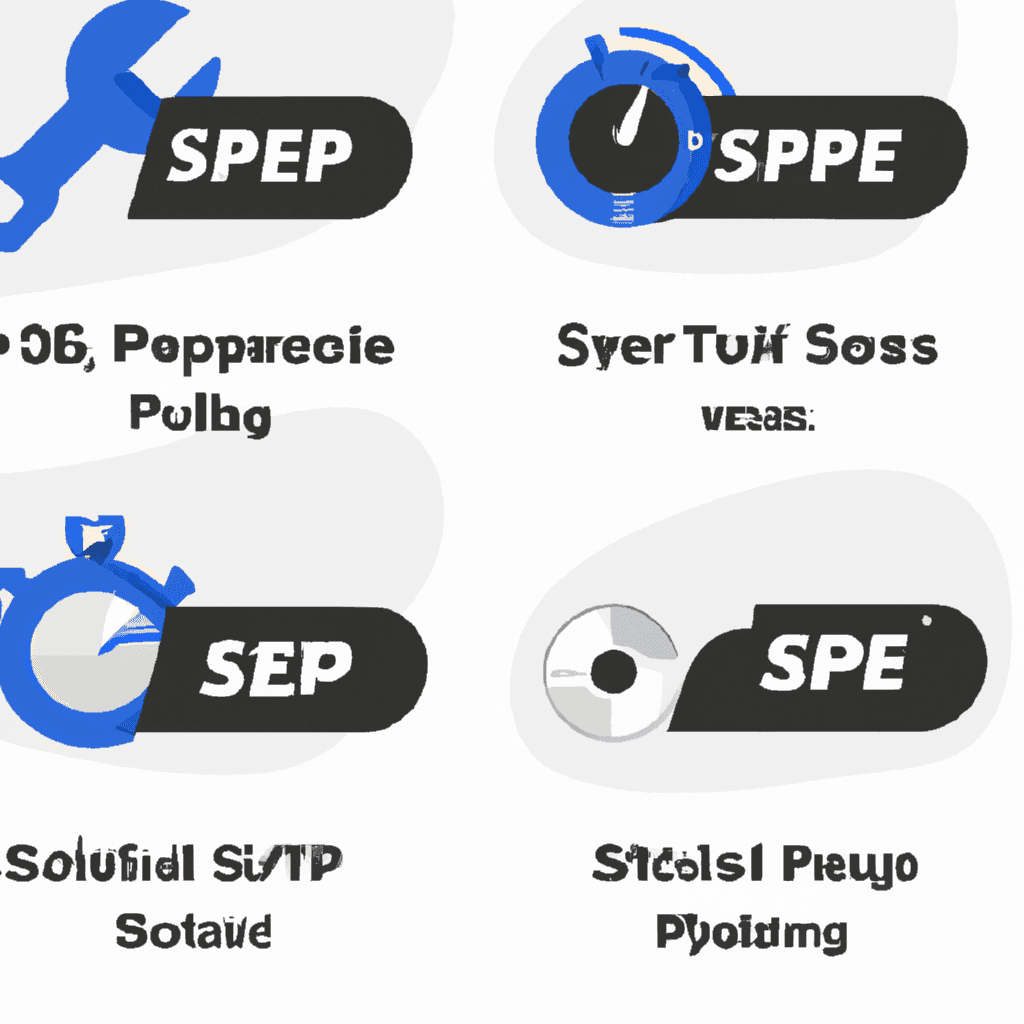5 Effective Time Management Strategies for Busy Entrepreneurs

5 Effective Time Management Strategies for Busy Entrepreneurs
Introduction:
Hello, young entrepreneurs! Being busy is like a badge of honor when you're starting a business. But sometimes, you might feel like there's just not enough time in the day to get everything done, right? That's where time management comes in. It's like having a magic wand that helps you organize your time so you can do more, have fun, and not get super tired. Today, we're going to explore some cool strategies that can help you manage your time like a boss!
Understanding effective time management techniques is crucial for entrepreneurial success. In this fast-paced world, mastering the art of scheduling, planning, and prioritizing can significantly impact your business and personal life. By adopting these strategies, you can streamline your workflow, reduce stress, and increase productivity, leading to a more balanced and rewarding lifestyle. Whether you're juggling multiple projects, striving to meet tight deadlines, or seeking more leisure time, learning to manage your time efficiently can be a game-changer.
Embracing time management not only enhances your ability to achieve business milestones but also ensures you have time for relaxation and recreation. It's about working smarter, not harder, enabling you to focus on what truly matters and pursue your passions with zeal. The journey of entrepreneurship demands resilience, flexibility, and a proactive approach to challenges, and effective time management lies at the heart of these qualities.
As we delve into the realm of time management, remember, these strategies are not rigid rules but flexible guidelines tailored to fit your unique entrepreneurial journey. The objective is to find what works best for you, creating a harmonious balance between your professional and personal life. So, let’s embark on this adventure, discovering the keys to unlocking your full potential through the power of time management.
What is Time Management?
Imagine you have a big box of Legos. Without a plan, you might start building something then get distracted and build something else. In the end, you have lots of unfinished projects. Time management is like following the Lego instructions step by step, so you finish a cool spaceship or a castle!
Time management is an essential skill set that encompasses planning, organizing, and controlling how much time to allocate to specific activities. It's about maximizing efficiency and productivity while minimizing stress and ensuring a healthy work-life balance. By mastering time management, you can achieve greater results in both your personal and professional endeavors.
The concept of time management plays a pivotal role in one’s productivity and overall effectiveness. It is especially crucial for entrepreneurs who often deal with the challenges of managing their businesses, overseeing projects, and maintaining a personal life. Efficient time management allows for better decision-making, goal achievement, and stress reduction, paving the way for fulfillment and success.
Understanding the principles of time management is like learning to navigate a complex landscape with confidence. It involves recognizing priorities, setting realistic goals, and allocating your resources wisely. Additionally, time management strategies empower you to handle unexpected challenges with grace, maintaining progress towards your objectives without becoming overwhelmed.
Effective time management hinges on self-discipline, prioritization, and the ability to make decisive choices about how to best use your time. It involves making conscious decisions to ensure that every minute counts, focusing on activities that align with your goals and values. This deliberate approach transforms time into a valuable ally in your quest for success and personal growth.
With good time management, you can:
- Get More Done: Finish your tasks like homework, chores, or your business projects.
- Feel Less Stressed: When you know what you need to do and when you feel calmer.
- Have More Free Time: You can play games, hang out with friends, or just chill out.
- Reach Your Goals: Like saving money to buy a new video game or growing your lemonade stand.
Adopting good time management practices offers a blueprint for a more organized life, enabling you to accomplish more with less effort. It is an invaluable skill that can transform your approach to work and leisure, ensuring that you make the most of each day. As we explore the strategies for effective time management, keep in mind the profound impact these practices can have on your journey as an entrepreneur and an individual.
Strategy #1: Make a Plan with SMART Goals
SMART Goals are:
- Specific: Clear like a sunny day. Instead of "do better in school," say "get an A in math."
- Measurable: You can count it or see it when it's done.
- Achievable: It's like wanting to jump over a puddle, not a lake.
- Relevant: It makes sense for you and what you want to do.
- Time-Bound: There's a deadline, like finishing a puzzle before bed.
Crafting SMART goals is a cornerstone of effective time management. This technique ensures that your objectives are clear, reachable, and aligned with your long-term vision. By setting goals that are Specific, Measurable, Achievable, Relevant, and Time-Bound, you lay a solid foundation for success, allowing you to focus your efforts and measure your progress accurately.
The power of SMART goals lies in their ability to provide direction and motivation. When goals are defined with precision and clarity, they become much more attainable. This methodical approach eliminates ambiguity, making it easier to break down the steps required to achieve your objectives. It also ensures that each goal is purposeful and contributes to the bigger picture of what you want to accomplish.
A critical aspect of setting SMART goals is ensuring they are realistic and within reach. Setting overly ambitious goals that are unreachable in the given timeframe can lead to disappointment and frustration. Conversely, goals that are too easy may not provide enough challenge or satisfaction. Finding the right balance is key to maintaining motivation and momentum.
Another significant benefit of the SMART framework is the emphasis on relevance. By ensuring that each goal aligns with your broader objectives, you can maintain focus and avoid being sidetracked by distractions. This alignment ensures that your efforts contribute directly to your ultimate ambitions, whether in your business endeavors, personal growth, or other areas of life.
Time-bound goals introduce a sense of urgency and deadline, which can significantly boost your productivity. Having a specific timeframe for achieving your objectives creates a sense of accountability and encourages you to manage your time effectively. This constraint helps prioritize tasks, fosters discipline, and enhances your ability to meet deadlines.
Example:
Let's say you have a lemonade stand. A SMART goal might be, "Sell 50 cups of lemonade by the end of the month." It's specific, you can count the cups, it's doable, it makes sense for your stand, and there's a time limit.
Setting SMART goals not only clarifies what you aim to achieve but also outlines the roadmap to get there. It encourages you to think critically about your plans, question their feasibility, and adjust your strategies as needed. This meticulous planning process is a catalyst for growth, innovation, and continuous improvement, laying a strong foundation for achieving long-term success.
In the context of entrepreneurship, SMART goals are especially valuable. They provide a structured approach to setting targets, measuring performance, and adjusting tactics. This methodical planning can mean the difference between a thriving business and one that struggles to find direction. By adopting SMART goals, you position yourself to navigate the complexities of the business world with confidence and precision.
Strategy #2: Prioritize Like You Pick Candy
Imagine you have a mix of your favorite candies but only so much room in your pockets. You pick the best ones first, right? That's like prioritizing your tasks. Here's how:
- Must Do: These are your favorite candies, like homework that's due tomorrow.
- Should Do: Kind of like the candies you like but don’t love, such as practicing a musical instrument.
- Nice to Do: This is the leftover candy, maybe something like reorganizing your bookshelf.
Use something called the Eisenhower Box to help:
- Urgent and Important: Do these tasks right away.
- Important, Not Urgent: Decide when to do them.
- Urgent, Not Important: See if someone else can do it for you.
- Not Urgent, Not Important: Do these later or maybe not at all.
Prioritization is a crucial skill in time management that helps you focus on tasks that are most important and urgent, ensuring you spend your time and energy on activities that truly matter. In the bustling life of an entrepreneur, the ability to distinguish between high-priority and low-priority tasks can significantly influence productivity and stress levels.
Understanding how to prioritize effectively involves recognizing the difference between tasks that are simply urgent and those that are important. Urgent tasks require immediate attention, often because of looming deadlines, while important tasks contribute to long-term goals and objectives. The Eisenhower Box, or matrix, is an effective tool for categorizing these tasks and determining where your focus should lie.
By identifying the tasks that are both urgent and important, you can take immediate action on projects that cannot wait and have a significant impact. This approach prevents last-minute rushes and the stress associated with tight deadlines. It also ensures that critical tasks related to your business's growth and sustainability are not neglected.
Tasks that are important but not urgent require strategic planning. These are often related to personal development, relationship building, or long-term business planning. Allocating specific times to address these tasks ensures continuous progress towards your goals without the pressure of an immediate deadline. This proactive approach helps maintain a healthy balance between current demands and future aspirations.
The Eisenhower Box also highlights tasks that are urgent but not important. These activities might demand attention but do not necessarily contribute to your broader goals. Learning to delegate or outsource these tasks can free up valuable time for more critical work, allowing you to focus on areas where your input is most impactful.
Finally, tasks that are neither urgent nor important are the lowest priority. These activities can often be minimized or eliminated altogether, freeing up time and energy for more meaningful tasks. This evaluation helps maintain a lean and efficient workflow, ensuring that your efforts are concentrated on areas that offer the greatest return.
By prioritizing tasks effectively, you not only boost your productivity but also enhance the quality of your work. It enables you to direct your attention and resources toward activities that offer the most value, both professionally and personally. This strategic focus is essential for achieving success and maintaining a fulfilling life.
Navigating the complexities of entrepreneurship demands a disciplined approach to task management. Prioritizing effectively not only ensures that you meet your immediate obligations but also paves the way for future growth and opportunities. It lays a foundation for a more organized, stress-free approach to business, allowing you to achieve more with less effort.
In summary, prioritization is not just about choosing which tasks to tackle first; it's about making strategic decisions that align with your long-term objectives. By implementing the Eisenhower Box and refining your ability to prioritize, you can make significant strides in your entrepreneurial journey, turning challenges into achievements and dreams into reality.
Strategy #3: Break Down Big Tasks (Like Lego Sets)
Big tasks can feel scary, like facing a boss in a video game. Break them down into smaller parts, like levels in a game. If you have a huge project, split it into steps. It's easier to start, and you feel awesome when you finish each part!
Breaking tasks into manageable pieces is an effective way to tackle large projects without feeling overwhelmed. This strategy, akin to solving a puzzle piece by piece, enables you to focus on one segment at a time, making progress more tangible and less daunting. It's an invaluable approach for entrepreneurs who frequently face complex challenges and ambitious initiatives.
The idea behind breaking down tasks is rooted in the psychological principle of chunking, where the brain more easily digests and processes information when it's divided into smaller, more manageable units. By applying this concept to your workload, you can enhance your focus, increase your efficiency, and foster a sense of accomplishment as you complete each segment of the task.
This approach encourages detailed planning and foresight, forcing you to think through the steps involved in a project and identify potential obstacles. It helps clarify the path forward, enabling you to allocate resources, set deadlines, and measure progress more effectively. This meticulous planning is essential for staying on track and avoiding the pitfalls of procrastination and ambiguity.
Another benefit of breaking down tasks is the ability to adjust your strategy as you progress. Each completed segment provides valuable feedback, allowing you to refine your approach and make improvements. This flexibility is crucial in the dynamic environment of entrepreneurship, where adaptability can be the key to overcoming challenges and seizing opportunities.
Example:
For your lemonade stand, instead of saying, "Make the best lemonade stand ever," you could have these steps:
- Research Recipes: Find the tastiest lemonade recipe.
- Design Stand: Make your stand look super cool.
- Gather Supplies: Get all the lemons, sugar, and cups you need.
- Advertise: Tell people about your stand with signs or on social media.
- Sell Lemonade: The fun part where you earn money!
Applying this strategy in practice, as illustrated with the example of the lemonade stand, showcases its effectiveness across diverse projects. Whether you're launching a new product, organizing an event, or developing a marketing campaign, breaking down tasks can streamline the process, making your goals more attainable and less overwhelming.
The technique of dividing big tasks into smaller chunks also enhances team collaboration and communication. It allows for clearer assignments, more precise deadlines, and better coordination among team members. This collaborative approach can significantly improve productivity and foster a sense of unity and shared purpose within your organization.
Moreover, experiencing the satisfaction of completing each step can boost your motivation and confidence. These small victories maintain your momentum, propelling you forward and keeping discouragement at bay. This positive reinforcement is particularly valuable in long-term projects, where progress might otherwise be difficult to perceive.
Breaking down tasks into manageable pieces is not just a method for simplifying projects; it's a powerful framework for approaching challenges with clarity and determination. It empowers you to tackle complex endeavors with confidence, turning ambitious visions into achievable realities. By embracing this strategy, you can navigate the entrepreneurial landscape with greater ease and success.
The ability to decompose tasks into smaller components is a reflection of strategic thinking and meticulous planning. It embodies the essence of effective time management, enabling you to exert control over your workload and navigate the entrepreneurial journey with finesse. This method is a testament to the philosophy that, by taking small, deliberate steps, even the loftiest goals are within reach.
In essence, breaking down tasks is a fundamental skill that enhances your ability to manage complex projects efficiently. It's a tool that sharpens your focus, bolsters your productivity, and bolsters your resilience in the face of challenges. By mastering this strategy, you can elevate your entrepreneurial endeavors, achieving greater success and fulfillment along the way.
Strategy #4: Use a Calendar and Checklist (Be the Boss of Your Time)
Calendars and checklists are like the map and compass for your adventure. A calendar shows you when to do things, and a checklist gives you the steps. Every evening, make a plan for the next day. Use apps or a notebook to keep track of everything.
Utilizing calendars and checklists effectively is akin to having a personal command center for managing your time. These tools provide a visual overview of your schedule, tasks, and deadlines, helping you stay organized and focused. For entrepreneurs, who often have a myriad of tasks vying for their attention, these tools are indispensable for maintaining control over their time and ensuring nothing falls through the cracks.
The application of calendars allows you to block out time for specific activities, meetings, and work sessions. This practice, known as time blocking, encourages a disciplined approach to time management. It helps you allocate your most productive hours to the most critical tasks, minimizing distractions and optimizing your efficiency. Using calendars also aids in visualizing your commitments, enabling you to balance your workload and avoid overcommitting.
Checklists complement calendars by breaking down larger tasks into actionable steps. They serve as a roadmap, guiding you through the necessary actions to complete a project. This methodical approach simplifies complex tasks, making them more approachable and manageable. Checklists also provide a satisfying sense of accomplishment as you tick off completed items, keeping you motivated and on track.
Tips:
- Color Code: Use different colors for school, fun, and your lemonade stand.
- Check Off: Feel like a champion when you check off things you've done.
- Adjust: Sometimes things change, so it's okay to update your plans.
By leveraging these tools thoughtfully, you can craft a personalized time management system that aligns with your goals and workload. Color-coding tasks and commitments, for instance, offers a quick visual cue to distinguish between different types of activities. This strategy enhances clarity, allowing you to navigate your schedule with ease.
Regularly reviewing and updating your calendar and checklist is crucial for staying adaptable. Changes are inevitable, whether they're last-minute meetings, unexpected opportunities, or shifting priorities. By maintaining flexibility in your scheduling, you can respond to these changes proactively, ensuring your time management system remains effective and relevant.
Incorporating technology can further enhance the utility of calendars and checklists. Numerous apps and software offer advanced features such as reminders, shared calendars, and syncing across devices. These tools can streamline your planning process, facilitate collaboration, and ensure you're always informed and prepared, no matter where you are.
The disciplined use of calendars and checklists empowers you to take charge of your time, transforming what might otherwise be a chaotic array of tasks into a structured and manageable plan. It allows you to allocate your time wisely, focusing on what matters most and making steady progress towards your goals.
By embracing calendars and checklists, you not only reinforce your organizational skills but also cultivate a proactive mindset. This approach to time management underscores the importance of planning, preparation, and follow-through, qualities that are essential for entrepreneurship success.
The value of using calendars and checklists cannot be overstated. They provide the framework and guidance needed to navigate the complexities of entrepreneurship with confidence. By making these tools integral to your time management strategy, you can enhance your productivity, achieve your objectives, and enjoy a greater sense of control over your busy life.
In conclusion, calendars and checklists are more than just organizational aids; they are powerful tools that enable you to unlock your full potential. By mastering their use, you can effectively orchestrate your time, transforming challenges into opportunities and aspirations into achievements. In the dynamic and demanding world of entrepreneurship, being the master of your time is not just an advantage—it's a necessity.
Strategy #5: Set Time Limits (Race Against the Clock)
Setting time limits can make a boring task feel like a race. Set a timer and see how much you can do before it goes off. This can make work fun and helps you focus. Plus, if you know you only have to clean your room for 15 minutes, it doesn't seem so bad, right?
Implementing time limits is a dynamic and engaging approach to managing time effectively. By establishing fixed intervals for completing tasks, you introduce an element of urgency and focus that can significantly boost your productivity. This method, often referred to as the Pomodoro Technique, leverages the principle of working in short, intense bursts followed by brief breaks, sustaining energy and concentration throughout the day.
The psychological benefit of setting time limits lies in the perception of tasks as more manageable. When faced with a long, potentially tedious assignment, breaking it into smaller time-bound segments can reduce resistance and increase motivation. It transforms the task into a series of short, attainable challenges, making the process more engaging and less overwhelming.
This strategy also reinforces time awareness, making you more conscious of how you allocate your hours and minutes. By racing against the clock, you develop a keener sense

Top 5 Unexpected Ways Musical Improvisation Can Enhance Your Blogging Strategy

Cultivating Variety: 5 Gardening Techniques to Enrich Your Content Strategy

Cultivating Your Digital Garden: 5 Strategies for Content Diversification

5 Ancient Cartography Techniques That Influenced Modern Mapping

Top 5 Strategies for Enhancing Cross-Disciplinary Research Collaboration

Top 5 Ways Cognitive Flexibility Enhances Content Creation

Top 5 Cognitive Behavioral Strategies for Entrepreneurs Seeking Peak Performance

The Role of Circadian Rhythms in Content Creation: Maximizing Productivity and Creativity

Maximizing Your Harvest: 5 Surprising Lessons from High-Tech Blogging Platforms

Top 5 Explosive Growth Hacking Case Studies for Newbies

Cracking the Code: Understanding the Costs of WordPress Website Maintenance

Top 7 Proven Strategies to Market Your Multi-Niche Blogs and Maximize SEO Impact

Revolutionizing Content Creation: How Auto-Blogging Platforms are Changing the Game

How to Achieve Seamless Auto-Scaling for Your E-Commerce Store with AWS and React

Unveiling OneClickBlog: Streamline Your Content Creation with Automated Multi-Blogging

How to Generate Passive Income Effortlessly with Automated Blogging

Transform Your Blog: Discover 5 Must-Have AI Tools for SEO-Optimized Content

Unleashing the Power of Auto-Blogging: A Guide for Content Creators

WordPress vs. Shopify: Mastering SEO for Quick Rankings in 2023

Revolutionizing Digital Entrepreneurship: Harnessing Auto-Blogging and Affiliate Marketing

Transitioning from Job Hunt Frustrations to Startup Founding: Is It Your Path Forward?
